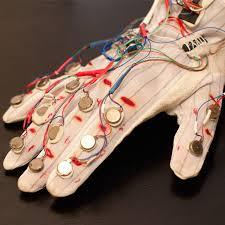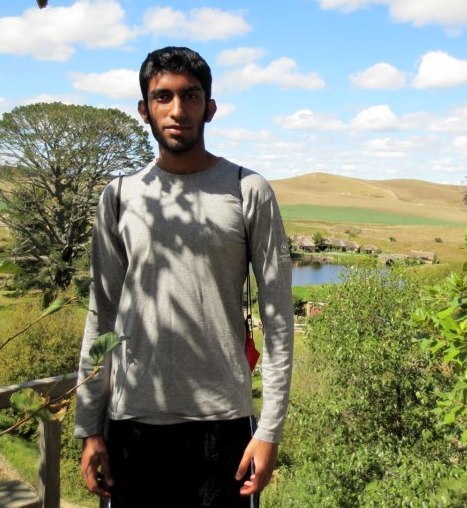Shantanu Bala doesn't like being called self-motivated, but from wherever he gets it, the 21-year-old ASU graduate has motivation in scads. Born to Indian immigrants in Phoenix, Arizona, Bala's academic prowess began at an early age. "My mom worked for the Maricopa Community College system... I used to enroll in all sorts of online classes starting when I was 10. Things like psychology, sociology, mythology, computing, math and literature," says Bala nonchalantly. His voracious appetite for academia led to skipping a grade in middle school -- his choice -- and admission to the International Baccalaureate program at Barry Goldwater High School in Phoenix. A student of his caliber might have been accepted into any school of his choice but Bala proudly admits that he only attended public schools and subsequently Arizona State University -- a public university. ASU has a reputation as a notorious party school, but beer pong was not the draw for Bala, "I think it put my own privilege in a better context from a young age," remarks Bala. "I'd occasionally be sitting next to someone [in class] who never graduated from high school or was struggling to find work. I don't think I would have had the same experience at a private school or with a private tutor."
During his tenure at Barry Goldwater High School, Bala maintained a heavy IB course load while continuing his college coursework and seeking out research opportunities. During his sophomore year of high school -- after minimal prompting from his older sister -- Bala emailed a professor at ASU to set up a tour of The Center for Cognitive Ubiquitous Computing (CUbiC), an interdisciplinary research facility focused on cutting-edge research with a medical or rehabilitative emphasis. After the tour, Bala volunteered his time and never looked back.
I began working [on an electronic glove that could be used by people with visual disabilities] under the supervision of a grad student named Sreekar...the research was very interesting and I was slowly given more and more autonomy over the projects. Sreekar even let me present at a conference my senior year of high school.
When it came time for Bala to apply to college he could not imagine going anywhere else. With his ASU tuition covered as a Flynn Scholar and his research at CUbiC waiting, he packed up to head to Tempe, Arizona. Bala was thrilled to be afforded the opportunity to continue his work on the project he had been a part of throughout high school, research that he would pursue through college and would eventually land him a fellowship. Bala will continue the project as a Thiel Fellow, one of the only 20 under 20 to begin the program having already graduated college. Which is fortunate for Bala as one of the stipulations for eligibility for the $100,000 Fellowship -- apportioned by Peter Thiel, CEO and co-founder of PayPal -- is that all applicants be under 20 years of age and willing to suspend their collegiate education for two years.
 (Photo courtesy of CUbiC at Arizona State University)
(Photo courtesy of CUbiC at Arizona State University)
Outside of CUbiC, Bala works on his tech startup Ebook Glue, a business-facing model that he began on a lark while playing with his new Kindle. He completed his coursework at ASU in Computer Science and Psychology at 19 all while shepherding the glove prototypes through several stages of development. "We wanted to see if we could turn facial expressions into tactile sensations a blind user would feel on their skin." The team was successful and continued to push forward, developing a full body suit and a chair that functioned similarly, with the ultimate goal of fully augmenting the human sensory system through neuro-prosthetics growing closer each day. "I didn't come up with the idea, but I slowly took on the project with my own original contributions. It's sort of a 'standing on the shoulders of giants' thing" he says modestly, then follows it up with an emoticon with its tongue sticking out. After all, Bala is still 21.
